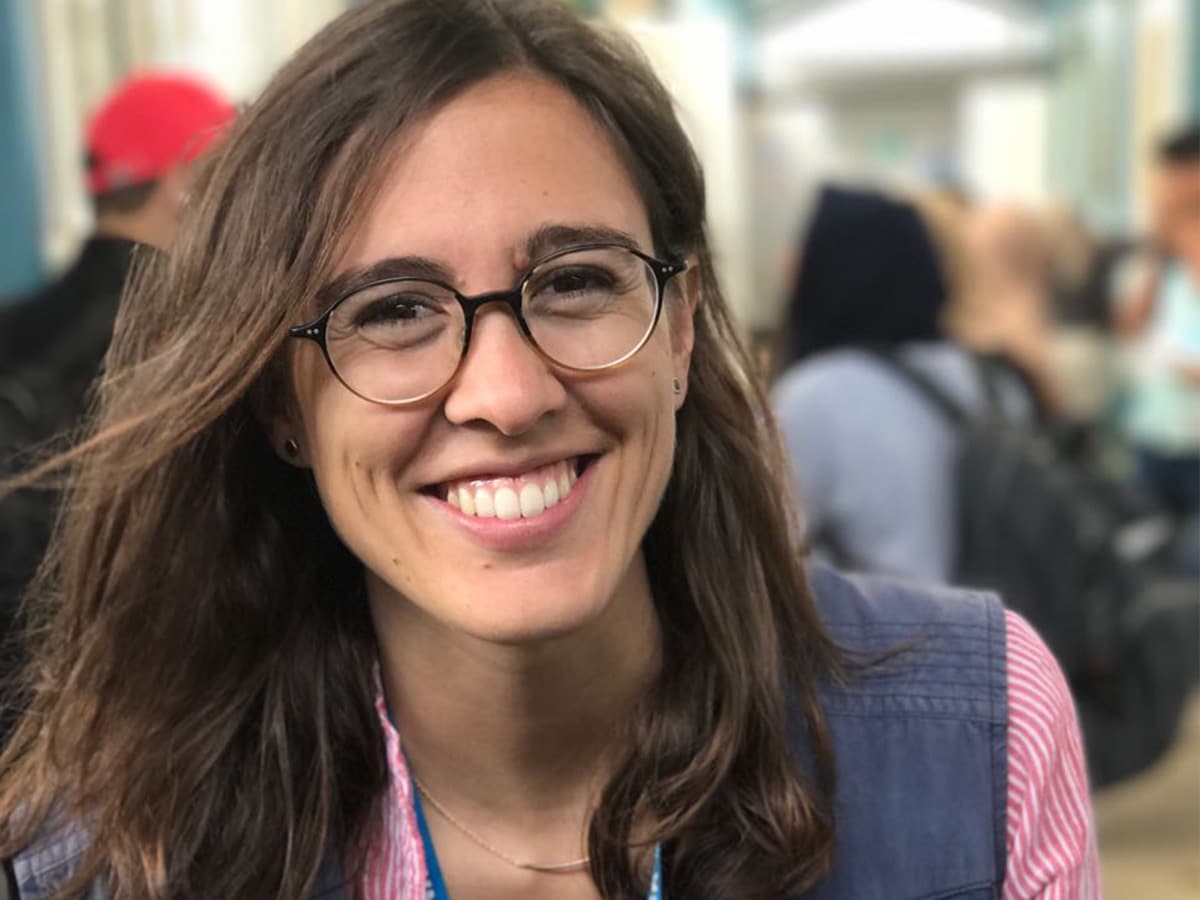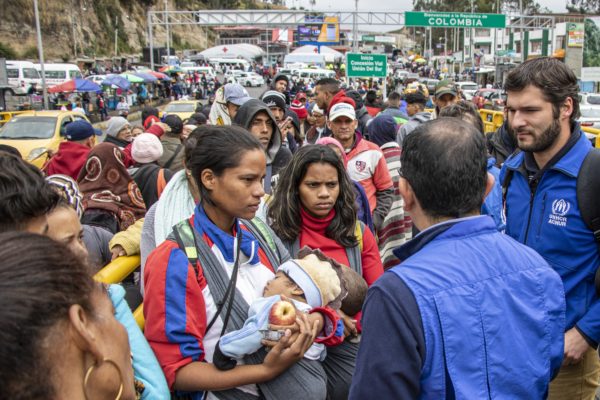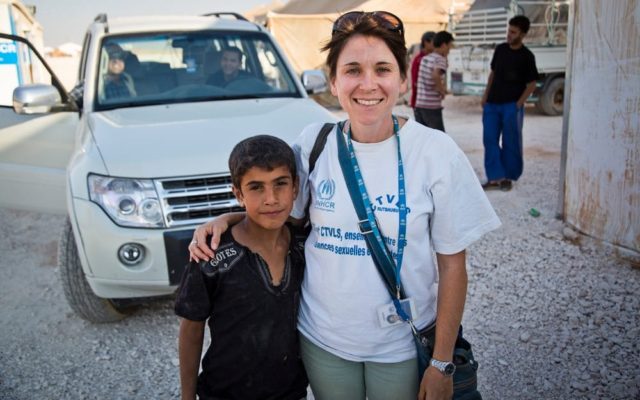
Olga Sarrado Mur, UNHCR Communications Officer. © Courtesy of Olga Sarrado Mur
By Hannah Scott
It can be hard to imagine a crisis involving more than four million people as invisible — but to UNHCR Communications Officer Olga Sarrado Mur, the Venezuela situation often feels that way.
In April of 2018, Sarrado Mur was working in Jordan helping Syrian refugees. But with a growing crisis in Venezuela, she was quickly put on a fast track to Colombia, where she was tasked with helping Venezuelan refugees and migrants who had fled their country. Back in spring of 2018, there were just over 1.5 million Venezuelan refugees and migrants. Now, there are over 4.5 million Venezuelans worldwide.
“Somewhere between 4,000 and 5,000 people leave Venezuela every day,” Sarrado Mur says. “It’s huge.”
The number of Venezuelans displaced abroad continues to grow because of how complex the situation is in Venezuela. Many Venezuelans do not feel safe and they face daily violence, insecurity and lack of access to basic services such as food and health care. Sarrado Mur recognizes that the vulnerability of Venezuelan refugees and migrants is growing — and their needs are, too.
As a communications officer on the ground, Sarrado Mur is tasked with telling the stories of the Venezuelan refugees she meets.
Sarrado Mur recently interviewed a Venezuelan mother who suffers from cancer. The mother had travelled with her children and their elderly grandmother to Colombia. Sarrado Mur spoke with her about the challenges she had in Venezuela trying to access medication for her condition, which caused her incredible pain. They also spoke about the difficulties she had in regularizing her situation in Colombia — something that needed to happen so she could begin her much-needed chemotherapy treatment.
“The woman accepted that she didn’t have much time, but I could tell that she wanted to spend as much time as possible with her family for the time she did have left.”
“Support from Canadians remains key. We need to raise awareness about what’s happening in Venezuela.”
Sarrado Mur says that, besides providing direct support and assistance to those in need, she and her colleagues also focus on increasing the visibility of the situations that Venezuelan refugees and migrants go through every day.
The invisibility Sarrado Mur references seems to — hopefully — be coming to an end. Together with the European Union and the International Organization for Migration, UNHCR co-hosted a conference in October 2019 to express solidarity with Venezuelan refugees and migrants. When asked how Canadians can also stand in solidarity with Venezuelans, her answer was clear: raise awareness.
“Support from Canadians remains key. We need to raise awareness about what’s happening in Venezuela. Information is very important.”
Some Canadians have shown their support for Venezuelan refugees and migrants by making donations through UNHCR.
“Donations go towards blankets, shelter, water, hygiene kits, community kitchens with food and health care, and info centres where Venezuelans can access information,” Sarrado Mur says. “But they also provide more long-term solutions, like programs to support the socio-economic integration of refugees in the communities hosting them.”
Before she joined UNHCR, Sarrado Mur was a journalist. When she decided to go to work in Jordan, she made a promise to herself that she would only continue delivering humanitarian aid if the work was honest and truthful — and it is.
“It’s important to thank Canada as a country and the Canadian citizens that support UNHCR. Every show of support counts and changes a life of the ground,” Sarrado Mur says.
To find out more about how you can help Venezuelans in need, visit unhcr.ca/venezuela




